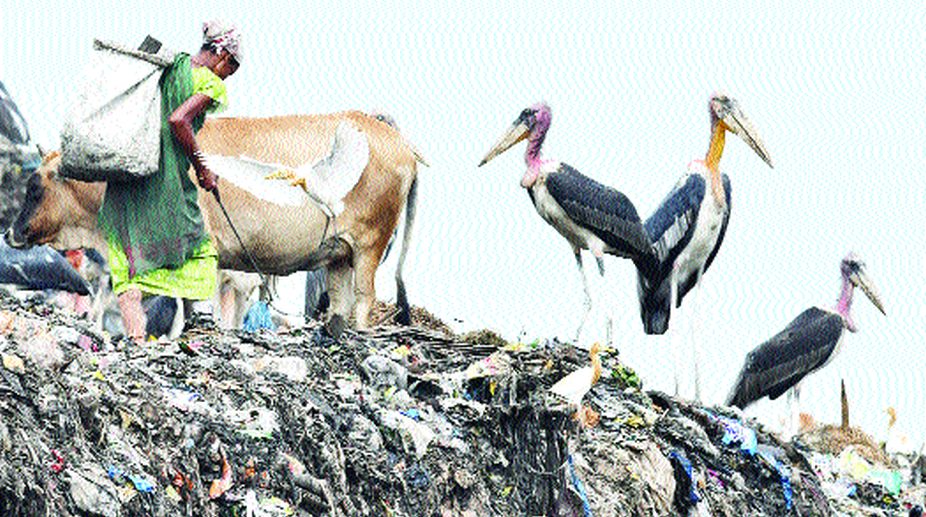Urging all stakeholders at the national and international level to work towards improving environment, Union environment minister Harsh Vardhan on Monday said India means business when it said “Beat Plastic Pollution” ~ this year’s theme for World Environment Day ~ and that it is not merely a slogan.
“Environment protection is not merely a technical, but a moral issue,” Vardhan said, delivering the inaugural address of the State Environment Ministers Conference in the run-up to World Environment Day in the Capital, an official communique said. Pointing out that 25,000 tonnes of plastic waste is generated every day, he opined that the developed world must provide the technology, funds and share their research on environmental issues.
Advertisement
The minister asserted that there is no waste which cannot be transformed into wealth and cited the example of Kashipur plant, where 10 tonnes of biomass is converted into 3,000 litres of ethanol. He underlined the need to use Earth’s finite resources judiciously to be able to move back to the unpolluted days. “If every Indian adopts one Green Good Deed per day, a revolutionary change can be brought about in the nation,” he pointed out.
He urged the State environment ministers to inspire people to take up Green Good Deeds and build small, social movements, stating that if all work collectively with heart and soul, India can be taken to the top of every parameter in the field of environment.
The minister underlined that fundamental changes have been brought about in his ministry and powers have been delegated to the States.
In his address on the occasion, Minister of State Mahesh Sharma expressed concern over the pollution caused due to plastic use in India and how it can create problems for future generations. Recalling the Gandhian thought of “Cleanliness is Godliness”, Sharma said this is the spirit behind the theme “Beat Plastic Pollution”.
Calling for implementation of Prime Minister Narendra Modi’s “mantra” of 6 Rs ~ Reduce, Recycle, Reuse, Retrieve, Recover, Redesign and Remanufacture ~ to eliminate single use plastic, Sharma said it was critical for a collaborative role of all stakeholders from the states in dealing with plastic menace.
Addressing the gathering, Executive Director of United Nations Environment in India, Erik Solheim pointed out that efforts are needed not only from the government side, but also from the people.
Strongly advocating recycling of all the plastic used, he suggested that plastic used for avoidable purposes such as straws must be refused. “We need to make environment a citizen’s issue,” Solheim added. The senior UN representative felt that universities should form rules and regulations for students to follow environment norms.











